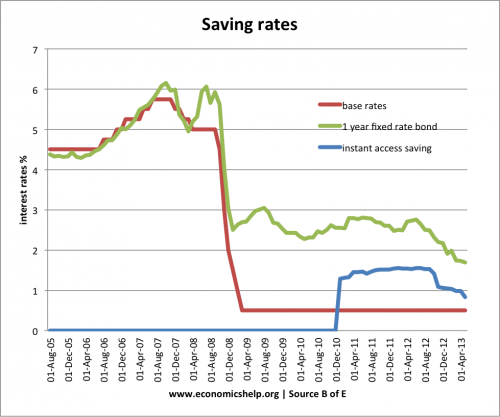Fed Rate Cuts Effect on Mortgage Rates
Post on: 13 Май, 2015 No Comment

In a variety of different directions but I see it as two primary functions:
- They make it cheaper for the ultimate provider of capital to lend to you. I.E. the banks have to pay less for their funds, so this lower cost trickles down to whomever is lending you the money for your mortgage.
- Other alternative fixed income investments that track the federal funds rate become less attractive which drives capital to mortgage related products. This also reduces mortgage rates as more people bidding for abs brings down the necessary yields in the underlying mortgage.
This is an incredibly popular topic of conversation, especially when the Federal Reserve (Fed) is lowering their benchmark rates. Many people, including some inexperienced mortgage brokers believe logically that if the Fed is lowering rates, then mortgage rates will be lower as well. If only it were that simple!
Fed rate cuts only affect mortgage rates inasmuch as rate cuts affect the broad economy. From there, the broad economic outlook is what has an impact on mortgage rates, and only then through a complex series of considerations.
But to be sure, Fed cuts have absolutely no direct correlation with mortgage rate cuts. In fact, the only market metrics that have a direct correlation with mortgage rates are Mortgage Backed Securities. which are referred to as MBS. When a loan is completed, it becomes an MBS through a process called securitization whereby either the lender or an Agency such as Fannie Mae, and in many cases both, pool a large group of similar mortgages together and separate the dollars of debt into securities that are sold very much like treasury bonds. Make sure you understand that before moving on. Mortgage loans=debt. By pooling loans together and dividing the pool into smaller securities, the risks of default and early payoff are evenly distributed throughout the pool so all the securities from that pool will perform equally. This risk mitigation entices far more investors to put up the money for mortgages. Then the securities are bought and sold just like stocks and bonds.

Once you understand that mortgages ultimately become securities, its easier to understand why the forces that affect rates are significantly more dynamic than a simple Fed rate cut. On these MBS, there is a price and a yield, just like a bond. The price is what the investor pays, and the yield is the fixed income interest rate paid back to the investor on the security. The yield of these securities correlates exactly to the interest rates available on mortgages. They will not be the exact same numbers, but they will vary in direct proportion. MBS are the ONLY financial instruments that are directly correlated to mortgage rate movement. The only exception is that the Fed Rates do affect Home Equity Lines Of Credit .
So, based on the above knowledge, the one and only economic factor that changes mortgage rates is the yield on an MBS. And this yield changes just like everything else from Econ 101. Its all a question of supply and demand. The higher the demand for the security, the higher the price. The higher the price, the lower the interest rate. Its really that simple. A high supply or a low demand can also create competition among sellers and lower the price which raises the interst rates.
So the question that seemed simple at first is really no so simple: How do Fed rate cuts affect supply and demand of mortgage backed securities? First of all, although Fed rate cuts are always considered by investors when making decisions where to put their money, there are always many additional factors that will affect the supply and demand of MBS.
For instance, inflation is a current hot button. Inflation reduces the value of todays money over time. Since MBS are fixed income investments, meaning their interest return is calculated based on todays dollars, inflation robs the MBS of value. As such, buyers of MBS are mortally afraid of uncontrolled inflation. If theres a risk to your asset, youd probably not be willing to pay as much for it right? If investors pay less for MBS, the price goes down because MBS sellers are trying to get buyers to participate again. If the price goes down, mortgage rates go up.
So think about what is happening in the market when we have very high consumer price indexes, high oil, high gold prices, and a weak dollar. Inflation, in this case is very high. But if the economy is also weak during this time of inflation, the Fed has to decide between lowering its benchmark rates to stimulate economic activity (because lower rates allow corporations cheaper access to money to do business), or keeping rates the same or higher in order to combat inflation. If this instance of an extremely weak economy coinciding with extremely high inflation, a Fed rate cut can make the inflation problem even worse, because it makes money cheaper for banks.
But wait! Didnt we just say that MBS and bonds in general HATE inflation? And here it is ladies and gentleman: thats why a fed rate cut can actually cause mortgage rates to go HIGHER !
This is just one example of the complex interconnectedness of Fed policy and mortgage rates. Also keep in mind that MBS are a very different animal compared to their cousin the US Treasury. Turmoil in the housing and mortgage markets affect MBS directly because the security is backed by a mortgage. If mortgages are in trouble (courtesy of foreclosures, etc), the securitys risk is higher. If the risk is higher investors demand a premium on the return, or yield, otherwise known as a higher interest rate on your mortgage! Furthermore, the collateral for a mortgage is a home. Home prices do not affect MBS directly, but they absolutely do so indirectly. If home prices are languishing and more depreciation is expected, investors see this as creating more defaults, short sales, and foreclosures in the mortgage market. If the mortgages that are generating the profits on MBS become more likely to default, again, investors demand that premium, so rates go up.
This is an excellent example of why the 10 year treasury is NOT a good indicator of the mortgage market. It is not subject to the risks created by the nausea that is currently sweeping the mortgage market. As such, there is always a certain spread between the yield of a 10 year and a similarly priced MBS. The MBS always returns more, but is always more risky.
So although weve only touched on a couple examples of the interconnectedness, I hope this sheds a little light on just how unconnected Fed Rate Cuts and mortgages can be. Certain factors in the mortgage servicing market and the housing market can completely override any intended impact of a Fed cut. We havent even begun to discuss yet the issues of liquidity and supply from MBS originators. To be sure, it is a complicated subject, and hopefully it is slightly more demystified for you now.
Let me know if this isnt a 10 out of 10 explanation as Id really like to update this article to answer all pertinent questions. I may even make an FAQ specific to this question in much the same way I did for [The Definitive Short Sale Article.].
Your feedback and suggestions on Wiki responses are always appreciated!
Answered about 7 years ago














